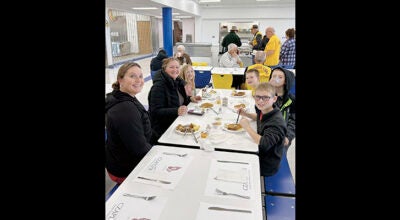St. Thomas offers another path to a degree
Published 12:55 pm Wednesday, November 23, 2016
St. Paul Pioneer Press
Distributed by Tribune Content Agency
As we prepare to give thanks this week, it’s fitting to reflect on the visionary institutions that strengthen our region under the leadership of caring people with the power to change lives.
Among them is the St. Paul-based University of St. Thomas, which last week announced that — in an effort to address the academic achievement gap and resulting economic disparities — it next fall will open a two-year college at its downtown Minneapolis campus.
Its Dougherty Family College will allow 300 students from economically disadvantaged backgrounds — with the most “under-resourced” students paying tuition as low as $1,000 — the opportunity to earn an associate of arts degree in the liberal arts.
The university, which will admit about 150 students to its inaugural class, explains that the college will be the first step toward a four-year degree and will offer an intensive teaching and mentoring experience for students who lack the academic credentials to immediately enroll in a four-year institution.
In a state with wide and persistent education and prosperity gaps, the university is asking “What can we do?” and finding its own answer.
University President Julie Sullivan — reflecting on discussion of the gaps at a recent meeting of St. Thomas’ trustees — told us that everyone “needs to find a way to put an ‘oar in the water’ because it’s going to take all of our effort” to address the disparities.
St. Thomas has raised $18 million in private donations for the college, including a major gift from Michael and Kathy Dougherty. Michael Dougherty is a St. Thomas graduate and trustee and the president of a Minneapolis investment bank and brokerage firm.
“A college degree is one of the best ways to beat poverty,” Dougherty says in a statement on the university’s website. “My wife, daughters and I want to give motivated, hard-working students the opportunity to succeed in college so they can use their talents and support themselves in the future. One day, I believe these students will be giving back to our community. But for now, this is a way for our family to give back to the community that has been so good to us.”
The couple’s gift is yet another of those we consider with appreciation for individuals who live the American Dream, turning business enterprises, entrepreneurial ideas and talent into personal wealth, leaving legacies that do good for all of us. We note such gifts with an eye toward smarter public policies, including tax policies, that make it advantageous to stay here, prosper and help assure that our institutions — and the people they serve — thrive.
St. Thomas says the program will allow graduates to make a seamless transition to public, as well as private, four-year institutions.
It offers another appealing component: engagement of the region’s corporate community. Paid internships will give students valuable work experience while “developing their professional and life skills.”
Sullivan is pleased that St. Thomas has developed “something that really fits with our mission” and the hallmarks of its education, which she described as “rigorous, personal and value-centered.”
The university’s mission, dating to its founding in 1885 by Archbishop John Ireland, “always has been to provide opportunities for students from all walks of life to earn a Catholic education,” she wrote in a letter to alumni and friends of the university. “Today, 131 years later, we enthusiastically embrace another opportunity to make a difference in the lives of young women and men and fulfill our mission to educate students ‘to be morally responsible leaders who think critically, act wisely and work skillfully to advance the common good.’”
The pathway to a degree can be a pathway out of poverty and one to family stability. Fortunate students will find the path that begins at St. Thomas.




